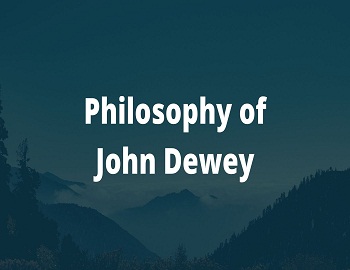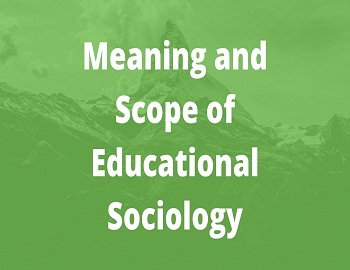Scope of Philosophy:
The scope of philosophy includes its branches. These branches of philosophy are as follows:
(1) Metaphysics- The term Metaphysics is derived from the Greek (Meta meaning “beyond” and Physics meaning “nature”). The term Ontology is sometimes used interchangeably with metaphysics. It is from the Greek Onto form of the verb meaning “is or to be”. Ontology asks the question of what does it means “to be” or “to exist”. The distinction between the two terms, metaphysics, and ontology, is so fine that both are often used by writers when referring to the same area of inquiry.
Metaphysics is the study of existence, reality, or essence. Its main branches are as follows:
- Cosmogony- This is the study of creation. Is the world created or is it eternal? How was the world created? Why was it created? Who created the world? What is the purpose of creation? All these are the problems of cosmogony.
- Cosmology- Cosmology is the collective title for the theories of metaphysics concerned with the nature of the universe. It deals with the nature of cause and effect and the relations of time and space. The main problems of cosmology are: Is the world one or is it many, or is it both one and many?
- Ontology- Ontology deals with the essential problems of the nature of reality. Is the reality one or is it many or is it both one and many? If reality is many, what is the relation between these many elements? It answers the question “What does it mean to ‘exist’?” All these are ontological questions. Several answers are suggested to these problems by three major schools of philosophy- realism, idealism, and pragmatism.
- Philosophy of Self (Free will Determination)- This is mainly concerned with the philosophical analysis of the self. What is the self? What is its relation with the body? Is it free or does it depend on the body? Is it one or many? All these are problems of the philosophy of self.
- Eschatology- The discussion of the condition of the soul after death, the nature of the other world, etc. forms the subject matter of this branch of philosophy.
- Teleology- Teleology concerns itself with the question of whether or not there is purpose in the Universe. Is worldly existence a mere accident or is there purpose in the life of man and the universe?
(2) Epistemology- What is true? Epistemology comes from the Greek word episteme meaning “knowledge” or “to know”. It is that field of philosophic inquiry that investigates the origin, nature of structure, methods, validity, and limits of knowledge. Since the philosopher seeks knowledge that is absolute, he must carefully examine all phases of the nature of knowledge if he is to answer the questions. “What is true?” Epistemology takes as its main area of discussion the major problems relating to the nature of knowledge and the procedures we use to resolve them.
There are three basic divisions of knowledge:
- A priori knowledge which is in existence prior to man’s recognition of it. It has universal validity and is recognized as true.
- A posteriori knowledge is based on observation and experience.
- Experience knowledge is always tentative and cannot, exist prior to experience.
Epistemology offers four ways of gaining knowledge:
- Rational approach.
- Empirical approach.
- Inspirational approach.
- Authoritarian approach.
(3) Axiology- What is Good? Axiology is derived from the Greek word ‘axios’ meaning “value or worth”. It is concerned with “A General theory of value” and the nature and types of value, as well as the standards of criteria for conduct and value judgment.
It asks: “What are values, and on what can their worth be judged?” It has been divided into the following three branches:
- Ethics- It discusses the criteria of right and good.
- Aesthetics- It discusses the nature and criteria of beauty.
- Logic- Logic studies truth. The subject matter of logic includes the methods of judgment, types of propositions, hypotheses, definition, comparison, division, classification, and fundamental laws of thought, etc.









Comments (No)